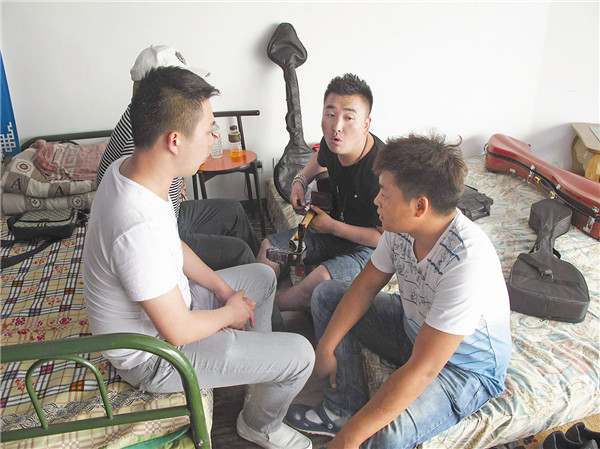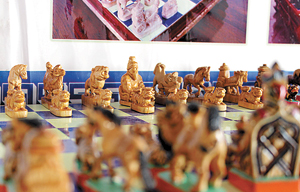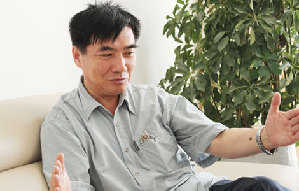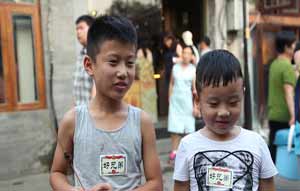Voice of tradition
Updated: 2013-07-11 14:19
By Wang Kaihao (China Daily)
|
||||||||
 |
|
Durenjana (second from right) practices Khoomei with his companions living in an attic in Hohhot, the Inner Mongolia autonomous region. |
It's the first day of a new semester at Od Suren Khoomei School, which is located in a roughly 60-square-meter office. The first few minutes resemble a yoga class, as more than 20 students enter the room and lie on the ground. On their backs, they raise their heads and stretch their legs while chanting.
"It's physical exercise," Durenjana says.
"But it's essential to control your breathing when singing Khoomei."
Durenjana comes from Xilinhot, capital of Xilin Gol League in the north of Inner Mongolia, about 600 km from Hohhot.
Durenjana and the three men rent an office's attic for 200 yuan ($33) each a month.
They eat, sleep and - literally - breathe Khoomei during the three-week course. All four run 3 km a night to build up their lung capacity.
Their 65-year-old teacher Od Suren is from Mongolia. He's the deputy director of Mongolia's National Khoomei Association and among the world's leading educators of the art. He introduced the throat-singing tradition to his country's university syllabus.
Od Suren first visited China in 1993 and enrolled six students to learn this nearly vanished skill. He has taught more than 1,000 Chinese students since. Many of the autonomous region's top Khoomei singers are his former students.
Khoomei was placed on the UNESCO Intangible Cultural Heritage List in 2009, representing China rather than Od Suren's homeland.
| Checkmate, Mongolian style | Grass is greener at home |

 Victoria Beckham S/S 2014 presented during NYFW
Victoria Beckham S/S 2014 presented during NYFW
 'Despicable' minions upset Depp's 'Lone Ranger' at box office
'Despicable' minions upset Depp's 'Lone Ranger' at box office
 'Taken 2' grabs movie box office crown
'Taken 2' grabs movie box office crown
 Rihanna's 'Diamonds' tops UK pop chart
Rihanna's 'Diamonds' tops UK pop chart
 Fans get look at vintage Rolling Stones
Fans get look at vintage Rolling Stones
 Celebrities attend Power of Women event
Celebrities attend Power of Women event
 Ang Lee breaks 'every rule' to make unlikely new Life of Pi film
Ang Lee breaks 'every rule' to make unlikely new Life of Pi film
 Rihanna almost thrown out of nightclub
Rihanna almost thrown out of nightclub
Most Viewed
Editor's Picks

|

|

|

|

|

|
Today's Top News
Going green can make good money sense
Senate leader 'confident' fiscal crisis can be averted
China's Sept CPI rose 3.1%
No new findings over Arafat's death: official
Detained US citizen dies in Egypt
Investment week kicks off in Dallas
Chinese firm joins UK airport enterprise
Trending news across China
US Weekly

|

|









